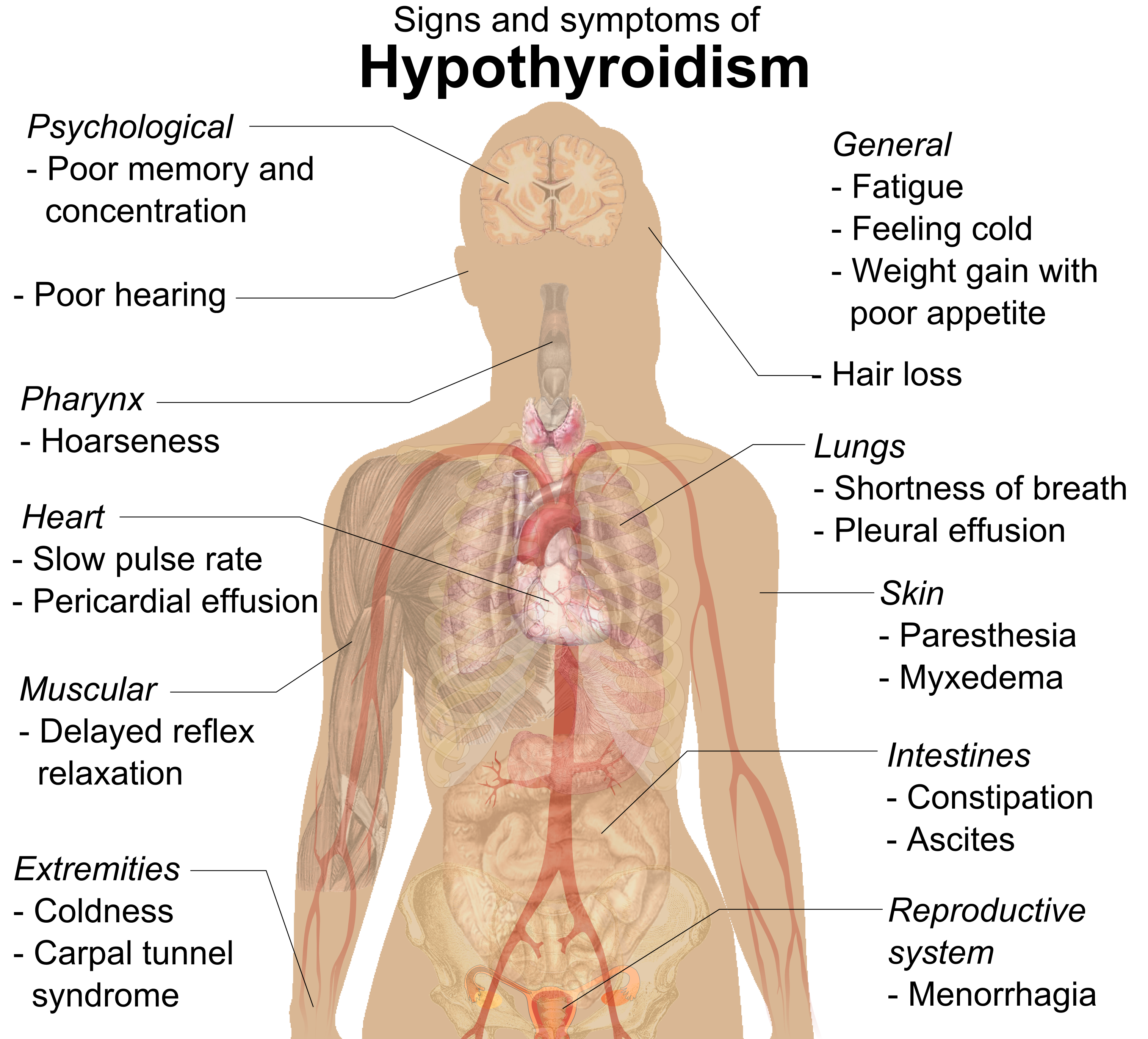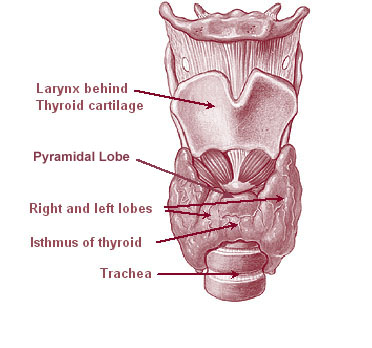|
Wilson's Temperature Syndrome
Wilson's (temperature) syndrome, also called Wilson's thyroid syndrome or WTS, is a term used in alternative medicine to attribute various common and non-specific symptoms to abnormally low body temperature and impaired conversion of thyroxine (T4) to triiodothyronine (T3), despite normal thyroid function tests. , a physician who invented the concept and named it after himself, treated these symptoms with sustained-release triiodothyronine (SR-T3) until one of his patients died and he was banned from prescribing this treatment any longer. Wilson's Syndrome is not an actual medical condition, and medical expert groups have warned against it as a potentially dangerous misunderstanding of physiology. The American Thyroid Association (ATA) released an official statement asserting that Wilson's syndrome is at odds with established knowledge of thyroid function and describing the diagnostic criteria for Wilson's syndrome as "imprecise" and "non-specific". After one of Wilson's pati ... [...More Info...] [...Related Items...] OR: [Wikipedia] [Google] [Baidu] |
Wilson's Disease
Wilson's disease is a genetic disorder in which excess copper builds up in the body. Symptoms are typically related to the brain and liver. Liver-related symptoms include vomiting, weakness, fluid build up in the abdomen, swelling of the legs, yellowish skin and itchiness. Brain-related symptoms include tremors, muscle stiffness, trouble in speaking, personality changes, anxiety, and psychosis. Wilson's disease is caused by a mutation in the Wilson disease protein (''ATP7B'') gene. This protein transports excess copper into bile, where it is excreted in waste products. The condition is autosomal recessive; for a person to be affected, they must inherit a mutated copy of the gene from both parents. Diagnosis may be difficult and often involves a combination of blood tests, urine tests and a liver biopsy. Genetic testing may be used to screen family members of those affected. Wilson's disease is typically treated with dietary changes and medication. Dietary changes involv ... [...More Info...] [...Related Items...] OR: [Wikipedia] [Google] [Baidu] |
Depression (mood)
Depression is a mental state of low mood and aversion to activity, which affects more than 280 million people of all ages (about 3.5% of the global population). Classified medically as a mental and behavioral disorder, the experience of depression affects a person's thoughts, behavior, motivation, feelings, and sense of well-being. The core symptom of depression is said to be anhedonia, which refers to loss of interest or a loss of feeling of pleasure in certain activities that usually bring joy to people. Depressed mood is a symptom of some mood disorders such as major depressive disorder and dysthymia; it is a normal temporary reaction to life events, such as the loss of a loved one; and it is also a symptom of some physical diseases and a side effect of some drugs and medical treatments. It may feature sadness, difficulty in thinking and concentration and a significant increase or decrease in appetite and time spent sleeping. People experiencing depression may ha ... [...More Info...] [...Related Items...] OR: [Wikipedia] [Google] [Baidu] |
Alternative Diagnoses
Alternative or alternate may refer to: Arts, entertainment and media * Alternative (Kamen Rider), Alternative (''Kamen Rider''), a character in the Japanese TV series ''Kamen Rider Ryuki'' * The Alternative (film), ''The Alternative'' (film), a 1978 Australian television film * ''The Alternative'', a radio show hosted by Tony Evans (radio), Tony Evans * 120 Minutes (2004 TV program), ''120 Minutes'' (2004 TV program), an alternative rock music video program formerly known as ''The Alternative'' *''The American Spectator'', an American magazine formerly known as ''The Alternative: An American Spectator'' * Alternative comedy, a range of styles used by comedians and writers in the 1980s * Alternative comics, a genre of comic strips and books * Alternative media, media practices falling outside the mainstreams of corporate communication * Alternative reality, in fiction * Alternative title, the use of a secondary title for a work when it is distributed or sold in other countries Music ... [...More Info...] [...Related Items...] OR: [Wikipedia] [Google] [Baidu] |
Broda Otto Barnes
Broda Otto Barnes (14 April 1906 – 1 November 1988) was an American physician and professor of medicine who studied endocrine dysfunction, particularly hypothyroidism. In the 1970s, Barnes published several books arguing that hypothyroidism was underdiagnosed in the U.S. and was responsible for a wide range of health problems. Barnes' views on the prevalence of hypothyroidism were never widely accepted by the medical community and run counter to its current understanding of thyroid function, but they have been embraced by some elements of the alternative medicine community. Biography Barnes was born on April 14, 1906, in a log cabin in Missouri, the son of Addie and Robert B. Barnes. Barnes studied chemistry at the University of Denver, and became an instructor of physiological chemistry at Western Reserve University for two years, receiving his M.S. in 1930. Barnes received his Ph.D. from the University of Chicago in 1931 and taught physiology there from 1931 to 1936. He ... [...More Info...] [...Related Items...] OR: [Wikipedia] [Google] [Baidu] |
Orlando Sentinel
The ''Orlando Sentinel'' is the primary newspaper of Orlando, Florida, and the Central Florida region. It was founded in 1876 and is currently owned by Tribune Publishing Company. The ''Orlando Sentinel'' is owned by parent company, '' Tribune Publishing''. This company was acquired by Alden Global Capital, which operates its media properties through Digital First Media, in May 2021. The newspaper's website utilizes geo-blocking, thus making it unaccessible from European countries. History The ''Sentinel''s predecessors date to 1876, when the ''Orange County Reporter'' was first published. The ''Reporter'' became a daily newspaper in 1905, and merged with the ''Orlando Evening Star'' in 1906. Another Orlando paper, the ''South Florida Sentinel'', started publishing as a morning daily in 1913. Then known as the ''Morning Sentinel'', it bought the ''Reporter-Star'' in 1931, when Martin Andersen came to Orlando to manage both papers. Andersen eventually bought both papers outri ... [...More Info...] [...Related Items...] OR: [Wikipedia] [Google] [Baidu] |
Heart Attack
A myocardial infarction (MI), commonly known as a heart attack, occurs when blood flow decreases or stops to the coronary artery of the heart, causing damage to the heart muscle. The most common symptom is chest pain or discomfort which may travel into the shoulder, arm, back, neck or jaw. Often it occurs in the center or left side of the chest and lasts for more than a few minutes. The discomfort may occasionally feel like heartburn. Other symptoms may include shortness of breath, nausea, feeling faint, a cold sweat or feeling tired. About 30% of people have atypical symptoms. Women more often present without chest pain and instead have neck pain, arm pain or feel tired. Among those over 75 years old, about 5% have had an MI with little or no history of symptoms. An MI may cause heart failure, an irregular heartbeat, cardiogenic shock or cardiac arrest. Most MIs occur due to coronary artery disease. Risk factors include high blood pressure, smoking, diabetes, la ... [...More Info...] [...Related Items...] OR: [Wikipedia] [Google] [Baidu] |
Heart Arrhythmia
Arrhythmias, also known as cardiac arrhythmias, heart arrhythmias, or dysrhythmias, are irregularities in the heartbeat, including when it is too fast or too slow. A resting heart rate that is too fast – above 100 beats per minute in adults – is called tachycardia, and a resting heart rate that is too slow – below 60 beats per minute – is called bradycardia. Some types of arrhythmias have no symptoms. Symptoms, when present, may include palpitations or feeling a pause between heartbeats. In more serious cases, there may be lightheadedness, passing out, shortness of breath or chest pain. While most cases of arrhythmia are not serious, some predispose a person to complications such as stroke or heart failure. Others may result in sudden death. Arrhythmias are often categorized into four groups: extra beats, supraventricular tachycardias, ventricular arrhythmias and bradyarrhythmias. Extra beats include premature atrial contractions, premature ventricular contracti ... [...More Info...] [...Related Items...] OR: [Wikipedia] [Google] [Baidu] |
Normal Body Temperature
Normal human body-temperature (normothermia, euthermia) is the typical temperature range found in humans. The normal human body temperature range is typically stated as . Human body temperature varies. It depends on sex, age, time of day, exertion level, health status (such as illness and menstruation), what part of the body the measurement is taken at, state of consciousness (waking, sleeping, sedated), and emotions. Body temperature is kept in the normal range by thermoregulation, in which adjustment of temperature is triggered by the central nervous system. Methods of measurement Taking a person's temperature is an initial part of a full clinical examination. There are various types of medical thermometers, as well as sites used for measurement, including: * In the rectum (rectal temperature) * In the mouth (oral temperature) * Under the arm (axillary temperature) * In the ear (tympanic temperature) * On the skin of the forehead over the temporal artery * Using heat flux ... [...More Info...] [...Related Items...] OR: [Wikipedia] [Google] [Baidu] |
Hypothyroidism
Hypothyroidism (also called ''underactive thyroid'', ''low thyroid'' or ''hypothyreosis'') is a disorder of the endocrine system in which the thyroid gland does not produce enough thyroid hormone. It can cause a number of symptoms, such as poor ability to tolerate cold, a feeling of tiredness, constipation, slow heart rate, depression, and weight gain. Occasionally there may be swelling of the front part of the neck due to goiter. Untreated cases of hypothyroidism during pregnancy can lead to delays in growth and intellectual development in the baby or congenital iodine deficiency syndrome. Worldwide, too little iodine in the diet is the most common cause of hypothyroidism. Hashimoto's thyroiditis is the most common cause of hypothyroidism in countries with sufficient dietary iodine. Less common causes include previous treatment with radioactive iodine, injury to the hypothalamus or the anterior pituitary gland, certain medications, a lack of a functioning thyroi ... [...More Info...] [...Related Items...] OR: [Wikipedia] [Google] [Baidu] |
Thyroid Function Test
The thyroid, or thyroid gland, is an endocrine gland in vertebrates. In humans it is in the neck and consists of two connected lobes. The lower two thirds of the lobes are connected by a thin band of tissue called the thyroid isthmus. The thyroid is located at the front of the neck, below the Adam's apple. Microscopically, the functional unit of the thyroid gland is the spherical thyroid follicle, lined with follicular cells (thyrocytes), and occasional parafollicular cells that surround a lumen containing colloid. The thyroid gland secretes three hormones: the two thyroid hormones triiodothyronine (T3) and thyroxine (T4)and a peptide hormone, calcitonin. The thyroid hormones influence the metabolic rate and protein synthesis, and in children, growth and development. Calcitonin plays a role in calcium homeostasis. Secretion of the two thyroid hormones is regulated by thyroid-stimulating hormone (TSH), which is secreted from the anterior pituitary gland. TSH is regulated by ... [...More Info...] [...Related Items...] OR: [Wikipedia] [Google] [Baidu] |
Eponym
An eponym is a person, a place, or a thing after whom or which someone or something is, or is believed to be, named. The adjectives which are derived from the word eponym include ''eponymous'' and ''eponymic''. Usage of the word The term ''eponym'' functions in multiple related ways, all based on an explicit relationship between two named things. A person, place, or thing named after a particular person share an eponymous relationship. In this way, Elizabeth I of England is the eponym of the Elizabethan era. When Henry Ford is referred to as "the ''eponymous'' founder of the Ford Motor Company", his surname "Ford" serves as the eponym. The term also refers to the title character of a fictional work (such as Rocky Balboa of the ''Rocky'' film series), as well as to ''self-titled'' works named after their creators (such as the album ''The Doors'' by the band the Doors). Walt Disney created the eponymous Walt Disney Company, with his name similarly extended to theme parks such ... [...More Info...] [...Related Items...] OR: [Wikipedia] [Google] [Baidu] |


.png)


